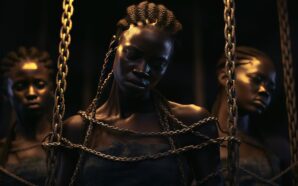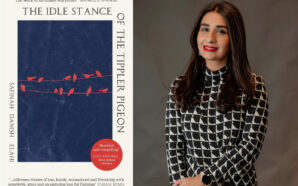Arranged marriages, hyper-conservative in-laws, violent husbands, mangoes, and of course the monsoon season are some of the numerous stereotypes, many may have an aversion to reading in a work of fiction or even non-fiction. That said, typecasting continues to plague writers from within the South Asian region as well as the diaspora.
Painting a conventionalized canvas reeking of clichés for primarily a white reading audience has always been a big ask from literary agents in the Western publishing landscape. Regardless of a reader’s appetite or stories presenting what is real and authentic from the region, what has long been decided is indulging Western readership with easy to digest, neo-colonialist, exoticized view of South Asian region.
Keeping this in mind, the third edition of Women in Literature Festival is featuring a fascinating session titled: Beyond Mangoes and Monsoons – Escaping the Identity Trap As a South Asian Writer.
The pre-recorded session will be broadcast on April 12th, 2023 on Ananke’s Facebook page – @anankemag (www.facebook.com/anankemag). Panelists include Farah Ali, Faiqa Mansab, Soniah Kamal, Rukhsana Yasmin with Naima Rashid chairing the discussion.
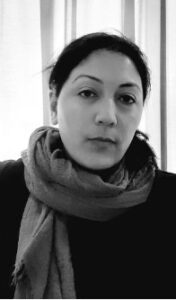
Farah Ali
Farah Ali is from Pakistan. She is the writer of the short-story collection People Want to Live. Her work has been anthologized in Best Small Fictions and the Pushcart Prize where it has also received special mention. Her stories have appeared in Shenandoah, Kenyon Review, Ecotone, and elsewhere. Her novel, The River, The Town, is forthcoming in 2023.
Talking about her participation, Farah Ali said: “Putting a writer into the “writer of color” category is forcing a monolithic identity upon a sizable population of the world. A reductive identity which a writer not-of-color feels comfortable making easy, reductive conversations with.”
“Engaging with work by a South Asian writer means engaging with art from a place whose ancestors were once colonized. That is an identity that was already forced upon them, an altered state that’s been embedded into that land’s successive generations. So now they (we) work with legacies of language, power structures, behaviour expectations. Though no longer colonized in that sense, we’re still forced to look at our own work from the outside, questioning our writing motives far more than our counterparts: Is this a trope? Am I playing to the gallery? Is this not topical enough?” she concluded.
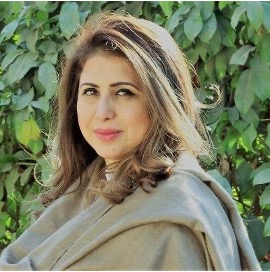
Faiqa Mansab
Farah’s co-panelist, Faiqa Mansab is a Pakistani writer. Her debut novel This House of Clay and Water was published by Penguin India in 2017. It has been translated into Turkish and optioned for screen adaptation. Mansab’s second novel is coming out in 2024 with Neem Tree Press UK and Penguin India. She has written for Lucy Writers Platform, Medusa Creatives, Tribune India and others. She has an MFA in Fiction with a Distinction from Kingston University London.
“This whole perspective of writing about mangoes etc as a cliche or something negative reeks of postcolonial hangups and low self esteem to me. If Wordsworth can wax eloquence about daffodils, Browning about April in England, Keats about English roses, Franzen about South African sunsets, why can’t Pakistani writers be respected for writing about mangoes, jasmine flowers, nightingales and oil lamps? This criticism only comes from South Asian readers who are sadly seeped in complexes linked to a colonial past. This attitude is based in ignorance and disrespect of one’s own culture, languages and literature. We have our own mythopoeic oeuvre and it is precisely all those things that people put in a bingo and demean as being too Pakistani,” Faiqa commented.
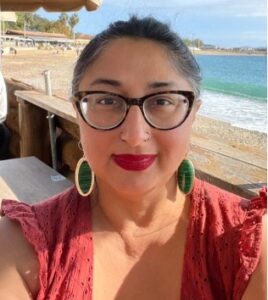
Soniah Kamal
In a LitHub article, author and panelist Soniah Kamal had earlier noted: “After reading four Pakistani authors say no-no to the mango, there I was with the greatest dilemma in the world: If I put the mango in, was I a sell-out? If I took it out, was I being true to the season? What fruit could I substitute? A jamun? But what is the English name for jamun? Should an English name even matter, a jamun being a jamun, like a corn dog is a corn dog. Would I yet have to italicize jamun? Who is the audience for my novel, anyway? Everyone? But what does everyone mean? Should I stick to an apple or a banana? Or would that be too generic?”
Soniah Kamal is an award winning novelist, essayist, public speaker. Her work has appeared in critically acclaimed anthologies and publications including The New York Times, The Guardian, The Normal School, Buzzfeed, TEDX stage, The Georgia Review, The Bitter Southerner, Catapult and more. Soniah novel, Unmarriageable: Pride & Prejudice in Pakistan is featured on PBS Books, Publishers Weekly hails it a ‘must read’ and Shelf Awareness has said that ‘ If Jane Austen lived in modern-day Pakistan, this is the version of Pride and Prejudice she might have written‘. Accolades for Unmarriageable include a Financial Times Readers’ Best Book, a People’s Magazine pick, an NPR Code Switch and New York Public Library Summer Read Pick, a Library Reads pick, a ‘Books All Georgians Should Read,’ a Georgia Author of the Year for Literary Fiction nominee, is shortlisted for the 2020 Townsend Award for Fiction, and more. Her social media handle is @soniahkamal
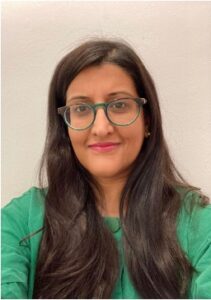
Rukhsana Yasmin
Taking the conversation further, Rukhsana Yasmin also shared: “There is a continuing discourse on what, why and who the south Asian writer writes for. There is a western gaze often talked about where perhaps the writer feels they have to pander towards the ‘exoticised’ expectation of a western publisher. Though this is sometimes the case, I am finding that there is a shift towards literature which might not mention mangoes nor monsoons; I would argue, though that these novels still fit a notion of what a South Asian writer ‘should’ be writing about.”
Adding she said: “I should add, though, that I speak as an editor based in the UK. And that publishing is a very subjective industry. There is no ‘one size fits all’ – add this to the dilemma of any writer and it becomes even more complex. What I tell all my writers is to write the story they want to tell – an authentic voice and good writing are the two qualities that all commissioning editors look for.”
Rukhsana Yasmin is an award-winning editor and a Bookseller Rising Star. She has worked at independent publishers Saqi, Profile, Serpent’s Tail and Jacaranda Books. Her freelance projects include editorial development and copy-editing services in fiction and nonfiction for several organisations, including Virago, Penguin, HarperCollins and Simon & Schuster. She is a former deputy editor of Wasafiri and Project Officer at Commonwealth Writers. Rukhsana is a literary agent, most recently associate literary agent at The Good Literary Agency and a trustee of The Centre for Literacy in Primary Education (CLPE).She lives in London and is currently working on her own life writing. www.thegoodliteraryagency.org/about/rukhsana/
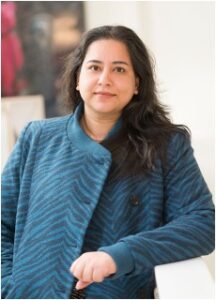
Naima Rashid
Chairing and envisioning the panel, Naima Rashid is an author, poet and translator. Her published and forthcoming books include Sum of Worlds (Yoda Press, 2023-2024), Naulakhi Kothi (Penguin Random House India 2023-2024), Chicanes (Les Fugitives, 2023) and Defiance of the Rose(Oxford University Press, 2019). Her writings have been widely published in journals of repute, including Asymptote, The Scores, Wild Court, among others. Her work was longlisted for National Poetry Competition 2019 and Best Small Fictions 2022. She is a collaborator with the UK-based translation collective, Shadow Heroes, which teaches young people to embrace all aspects of their linguistic and cultural heritage.
Sharing her views, Naima said “Dwell on the monsoon a little longer. Give another paragraph to the mango descriptions. Readers LOVE these. But also, Don’t write about mangoes in Lahore. It’s such a cliché. So many others have already used it as a hook. No weddings and monsoons together. It’ll be too Monsoon Wedding-like. Those are real things that me and my fellow South Asian writers writing in English hear from agents and editors. Between ending up running towards reductive stereotypes and trying too hard to run away from them, what happens to our own voice? How can we resist the pressures of the publishing world and its skewed power dynamics and OWN our voice? Mangoes and monsoons —- these are all part of our reality. It’s a rich, heady mix. But it’s only one part of our reality. There is so much more. Neither mangoes nor monsoons would be a remotely accurate thumbnail. When we write our stories, there’s always another voice telling us to amp up something or dial it down so that it appeals the publisher or the agent who’ll sell our work. Sometimes, it’s not an external voice anymore, but the insensitive critiques and grossly reductive comments we have internalized, having heard them on repeat for so long.”
Eminent names from across South Asia, MENA and beyond will be gracing the third edition of Ananke’s Women in Literature Festival 2023 on April 11th and 12th. Independent publishers, authors, filmmakers, artists, writers and creatives will congregate remotely to engage in dialogue focusing on a wide ranging array of topics.
Partners of the event include Seagull Books, Zuka Books, Neem Tree Press, Yoda Press and Readomania. More partners and collaborators will be announced soon.
Watch this space for more information!
Festival Topics Ideas (not limited to the below)
- Exploring New Pathways to Creativity and Literature
- The Language of Grief vis-à-vis the Dialectics of Freedom & Autonomy
- The Migratory Experience of Language
- Digital Disruption & Content
- Decentralizing the human to realize an inclusive world – Ending the era of the Vitruvian man
- Reimagining Anthropocene: A post-humanist exploration of climate resilience, urbanism, and nonhuman habitat loss in South Asian fiction
- Blurred Lines: On Science, Fiction and Fantasy
- The Age of the Graphic Novel
- Inclusive Publishing
- Publisher’s Corner
- Spotlight
- Illustrated Resistance
- Transnational Feminism in Print and Media
Image by Florian Pircher from Pixabay









